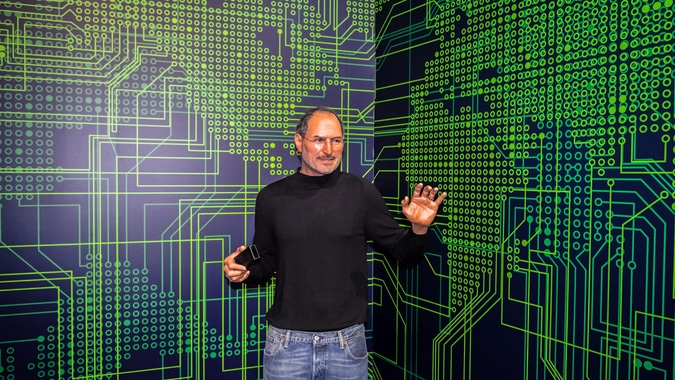This article was translated from our Spanish edition.
Opinions expressed by Entrepreneur contributors are their own.
How addicted are you to your cell phone? How much time do you spend in front of a screen? Would you let your children do the same? Steve Jobs thought it was not a good idea, so he did not let his children use iPads and iPhones, generally technology.

Depositphotos
In 2010, a New York Times reporter had a conversation that revealed a lot about the life of the founder of Apple. Nick Bilton commented, “Your kids must love the iPad, right?” After the launch of the device. Jobs replied, “They haven’t used it. We limit the amount of technology our children use at home. “
Any special reason? According to Walter Isaacson, the author of the Steve Jobs biography, the family focused more on history or reading, as well as activities that had to do with technology. Walter interacted with the Jobs and explained:
“Every night Steve insisted on dining at the big kitchen table, talking about books, history and a variety of other things. Nobody ever took out an iPad or a computer. The kids didn’t seem addicted to the devices. “
Image: Depositphotos
It’s not the only one
A large number of CEOs and prominent figures of Silicon Valley companies significantly reduce the time their children spend in contact with technology.
For example, Bill Gates did not give his children cell phones until they were 14 years old. In addition, its use was prohibited during lunch, dinner and before sleeping.
The recommendation of the American Academy of Pediatrics is to limit technology according to the age of the children, since there is a great fear that the use of the devices will become compulsive and uncontrolled.
According to the authors of the book ‘Screen Schooled’ , and several former employees of technology companies, when it is used compulsively, it ends creativity and limits social relationships.
What do they know that we don’t?
They are not few, indeed many people who have or had to do with technological development restrict it at home. A former Google executive, Tristan Harris , even warned of the “tricks” that websites like Facebook or YouTube use to hold our attention without us noticing.
In 2020, the Netflix documentary ‘The Social Media Dilemma’ was released. This caused a great furor by revealing to the voice of former employees of the industry, how social networks work and make us “addicted”.
There is a phrase that stands out in the film: “There are two industries that call their customers users: illegal drugs and software .” It seems Steve Jobs saw this coming.
The film describes the addiction and negative impacts of social networks in our daily life, which is closely linked to the devices with which we interact. In addition, thanks to the testimonials he explains how they literally play with our emotions and behaviors.
What are the risks?
Various studies indicate that addiction to screens leads to problems with concentration, vision, sleep, low tolerance for frustration and, in some cases, low self-esteem.
